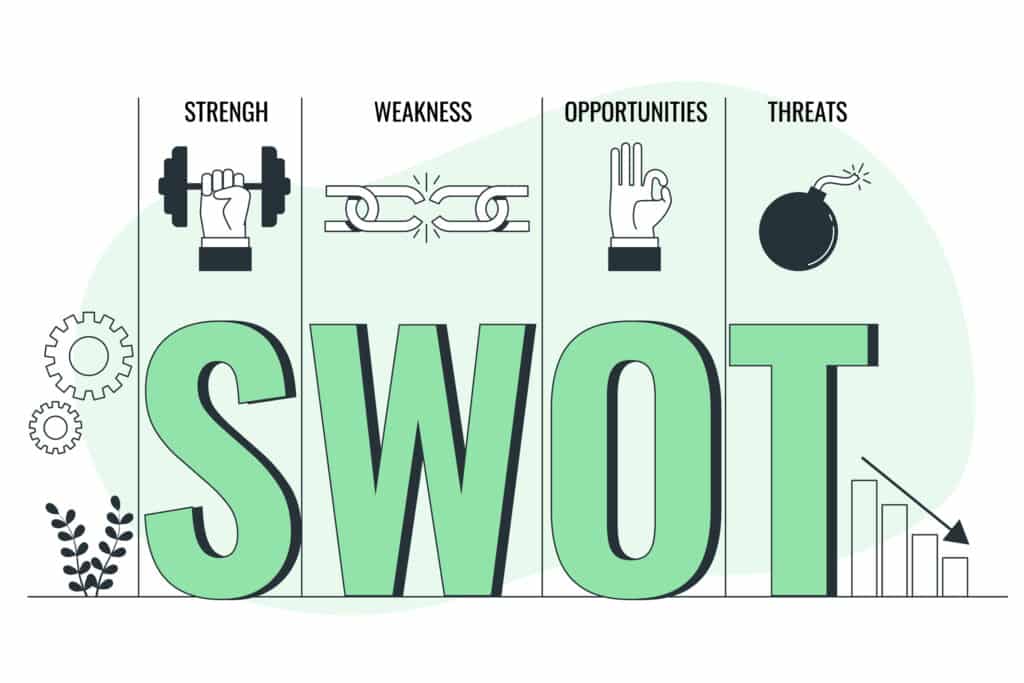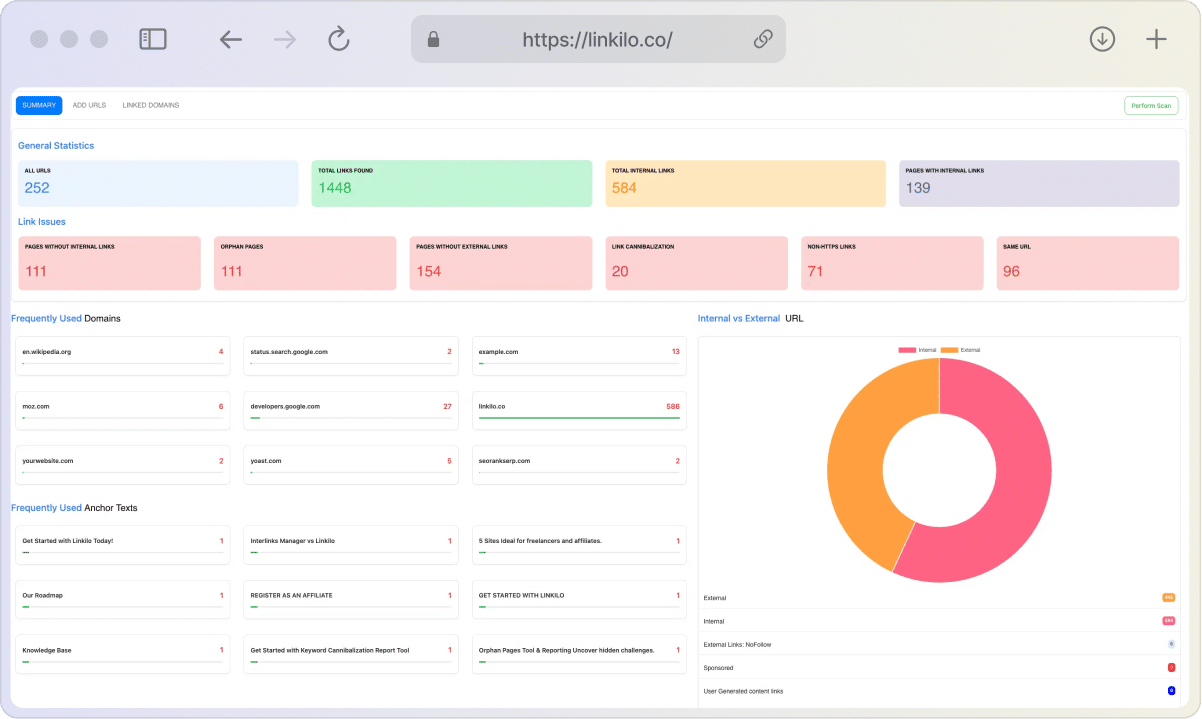Let’s be real. Building a thriving SEO agency isn’t a walk in the park.
- Maybe you’re hustling for new clients… but it feels like everyone’s already working with someone else.
- Perhaps you’re struggling to show the REAL value of SEO… because clients are fixated on quick wins (and not the long game).
- Or it could be that you’re drowning in technical stuff… and don’t have the time or energy to focus on actually growing your business.
Sound familiar? If so, you’re not alone. But here’s the good news: this guide is your roadmap to breaking through those barriers and scaling your agency to new heights. We’re talking more clients, happier clients, and a smoother, more profitable operation overall.
Ready to ditch the struggle and step into success? Let’s dive in.
What Does “Growing Your SEO Agency” Actually Mean?
It’s more than just signing more clients. Sure, that’s part of it, but true growth is about building a sustainable, profitable business that you actually enjoy running. It’s about:
- Client Acquisition: Consistently attracting high-quality clients who value your expertise and are willing to invest in long-term results.
- Service Expansion: Diversifying your offerings to meet the evolving needs of your clients and open up new revenue streams.
- Team Building: Assembling a skilled and motivated team who can deliver exceptional results and free you up to focus on the big picture.
- Operational Efficiency: Streamlining your processes and workflows to maximize productivity, minimize errors, and boost your bottom line.
- Thought Leadership: Establishing yourself as an authority in the SEO space, attracting even more clients and commanding premium fees.
Who Is This Guide For?
This guide is tailored for a few key audiences:
- Solopreneurs and Small Teams: You’re wearing all the hats (or most of them) and need a clear path to scaling without burning out.
- Established Agencies: You’ve got a solid foundation but are hitting a growth plateau and need fresh strategies to break through.
- Aspiring Agency Owners: You’re dreaming of launching your own SEO business and want to set yourself up for success from day one.
No matter where you are on your journey, this guide will provide actionable insights and strategies to help you achieve your growth goals.
Your Action Plan for SEO Agency Growth: A Step-by-Step Guide
| Phase | Focus Areas | Goals | Timeline | Tools & Resources |
|---|---|---|---|---|
| Foundation (0-3 months) | 1. Niche Selection: Define target industry/client | Specialize, attract ideal clients, stand out from competition | 0-1 month | Industry research, competitor analysis, client surveys |
| 2. Website Optimization: Technical SEO, content audit | Improve site performance, user experience, and search engine visibility | 1-2 months | Google Search Console, PageSpeed Insights, SEMrush, Ahrefs, Screaming Frog SEO Spider | |
| 3. Content Creation: Blog posts, pillar content | Build authority, attract organic traffic, educate potential clients | Ongoing | Content calendar, keyword research tools, SEO writing guides | |
| Growth (3-12 months) | 4. Client Acquisition: Inbound & outbound strategies | Generate leads, convert leads to clients, build referral network | Ongoing | CRM, email marketing tools, LinkedIn Sales Navigator, referral program software |
| 5. Service Expansion: Technical SEO, content marketing | Increase revenue streams, offer comprehensive solutions, attract high-value clients | Ongoing | Technical SEO training, content marketing courses, agency partnership opportunities | |
| 6. Team Building: Hire specialists, outsource tasks | Scale operations, increase capacity, improve service quality | As needed | Job boards, freelancer platforms, HR consultants | |
| Scale (12+ months) | 7. Process Optimization: Project management, automation | Streamline workflows, improve efficiency, reduce costs | Ongoing | Project management software, Zapier, IFTTT |
| 8. Thought Leadership: Speaking, content, networking | Build authority, attract premium clients, increase brand awareness | Ongoing | Conference platforms, HARO, industry publications | |
| 9. Data Analysis: KPI tracking, reporting | Measure performance, identify growth opportunities, make data-driven decisions | Ongoing | Google Analytics, Google Data Studio, AgencyAnalytics |
Additional Notes:
- Timeline: The timeline is a general guideline and may vary depending on your agency’s specific circumstances.
- Tools & Resources: This is not an exhaustive list, but it includes some of the most popular and effective tools and resources for SEO agencies.
- Adaptability: This roadmap is meant to be a flexible framework. Adapt it to your agency’s unique needs and goals.
Proven Strategies to Catapult Your Agency’s Growth
1. Nail Your Niche:
Instead of trying to be everything to everyone, focus on a specific industry or type of client. This allows you to:
- Become an Expert: Deeply understand your target audience’s pain points and goals, positioning you as the go-to authority in their niche.
- Refine Your Messaging: Craft targeted marketing messages that resonate with your ideal clients, increasing your conversion rates.
- Stand Out from the Competition: Differentiate yourself from generalist agencies by offering specialized expertise and tailored solutions.
Example Scenario:
Let’s say you’re passionate about sustainable businesses. You could niche down and focus on providing SEO services to eco-friendly companies, organic food brands, or renewable energy providers.
2. Showcase Your Success Stories:
Potential clients want to see proof that you can deliver results. Highlight your most impressive case studies, emphasizing:
- Specific Metrics: Showcase quantifiable results like increased organic traffic, higher keyword rankings, or improved conversion rates.
- Client Testimonials: Share glowing reviews from satisfied clients, showcasing their positive experiences and the impact of your work.
- Before-and-After Comparisons: Visually demonstrate the improvements you’ve achieved for your clients, using charts, graphs, or screenshots.
Example Scenario:
If you helped a local bakery increase their organic traffic by 50% and achieve the top ranking for their target keywords, feature this case study prominently on your website and social media channels.
3. Build a High-Performance Team:
As your agency grows, you’ll need a talented team to help you scale. Focus on:
- Hiring for Fit: Look for individuals who share your values and are passionate about SEO.
- Investing in Training: Provide ongoing training and development opportunities to keep your team’s skills sharp and up-to-date.
- Empowering Your Team: Encourage autonomy and initiative, fostering a collaborative and results-oriented culture.
Example Scenario:
If you’re struggling to manage client communication and project deadlines, consider hiring a dedicated project manager to streamline your workflows and free you up to focus on business development.
4. Master the Art of Client Acquisition:
It’s not just about getting more clients, it’s about attracting the right clients—those who value your expertise, are willing to invest in long-term results, and are a good fit for your agency. Here’s how to refine your approach:
- Ideal Client Profile (ICP): Create a detailed profile of your ideal client, including their industry, company size, pain points, goals, and budget. This helps you focus your marketing efforts and tailor your proposals to resonate with them.
- Inbound Marketing: Attract potential clients through valuable content, SEO, social media, and other inbound channels. This builds trust and credibility, positioning you as a thought leader in your niche.
- Outbound Sales: Proactively reach out to potential clients through cold email, LinkedIn, or other outbound channels. Be sure to personalize your outreach and offer value upfront.
- Referral Network: Encourage satisfied clients to refer you to their network. Offer incentives like discounts or bonuses to incentivize referrals.
Example Scenario:
If your ideal clients are small to medium-sized e-commerce businesses, you could create a series of blog posts or webinars on SEO strategies specifically for e-commerce. You could also join relevant online communities and offer free SEO audits to potential clients.
5. Expand Your Service Offerings:
As your expertise grows, so should your service offerings. This not only increases your revenue potential but also allows you to provide more comprehensive solutions to your clients. Here are some ideas for expanding your services:
- Technical SEO: Offer website audits, speed optimization, and other technical services to improve your clients’ website performance.
- Content Marketing: Help your clients create high-quality, SEO-friendly content that attracts and engages their target audience.
- Local SEO: Optimize your clients’ online presence for local search, helping them attract more customers in their local area.
- Paid Advertising: Manage your clients’ paid advertising campaigns, complementing their organic SEO efforts for faster results.
- Conversion Rate Optimization (CRO): Analyze your clients’ website data and implement changes to improve their conversion rates.
Example Scenario:
If you’ve been primarily focused on on-page and off-page SEO, consider adding content marketing services to your offerings. This allows you to provide a more holistic solution to your clients and generate recurring revenue through monthly retainers.
6. Streamline Your Operations:

Efficient processes are the backbone of a scalable SEO agency. Here’s how to optimize your operations:
- Project Management: Use project management software (like Asana, Trello, or Basecamp) to track tasks, deadlines, and client communication. This ensures everyone is on the same page and projects stay on track.
- Time Tracking: Track your team’s time spent on each task to accurately bill clients and identify areas where you can improve efficiency.
- Reporting: Create standardized reports that clearly communicate your progress to clients. This builds trust and demonstrates the value of your services.
- Automation: Automate repetitive tasks like keyword research, reporting, or social media scheduling to free up your team’s time for more strategic work.
- Client Onboarding: Create a seamless onboarding process for new clients to ensure a positive first impression and set clear expectations.
Example Scenario:
If you’re finding it difficult to keep track of all the different tasks and deadlines for each client, implement a project management system to centralize communication and streamline workflows.
7. Become a Thought Leader:
Establishing yourself as a thought leader in the SEO industry can attract high-quality clients and command premium fees. Here’s how to build your authority:
- Content Marketing: Create valuable blog posts, articles, videos, or podcasts that educate your audience and showcase your expertise.
- Speaking Engagements: Speak at industry conferences or webinars to share your knowledge and network with potential clients.
- Networking: Build relationships with other SEO professionals and industry influencers to stay ahead of the curve and get your name out there.
- Awards and Recognition: Apply for industry awards or get featured in relevant publications to boost your credibility.
- Social Media: Share your insights and engage with your audience on social media platforms like LinkedIn or Twitter.
Example Scenario:
If you have a unique perspective on a specific SEO strategy or tactic, write a comprehensive guide or create a video tutorial to share your knowledge with the community.
8. Invest in Your Growth:

Continual learning and development are essential for staying ahead in the ever-evolving SEO landscape. Here are some ways to invest in your growth:
- Professional Development: Attend industry conferences, webinars, or workshops to learn new skills and stay up-to-date on the latest trends.
- Mentorship: Seek out experienced SEO professionals who can offer guidance and support as you grow your agency.
- Industry Publications: Subscribe to reputable SEO blogs or newsletters to stay informed about algorithm updates, best practices, and new tools.
- Networking Events: Attend industry events to connect with other SEO professionals, share ideas, and build relationships.
- Continued Education: Consider pursuing advanced SEO certifications or courses to deepen your knowledge and differentiate yourself from the competition.
Example Scenario:
If you’re looking to expand your technical SEO skills, enroll in a technical SEO course or workshop to learn the latest techniques and tools.
9. Track, Measure, and Analyze:

Data is your best friend when it comes to growing your SEO agency. It tells you what’s working, what’s not, and where to focus your efforts for maximum impact. Here’s what to track and how to use the data:
- Key Performance Indicators (KPIs): Identify the metrics that matter most to your agency’s success. This could include organic traffic, keyword rankings, conversion rates, client acquisition cost, revenue per client, and more.
- Analytics Tools: Utilize tools like Google Analytics, Google Search Console, and other SEO platforms to track your website and client websites’ performance. Set up dashboards to visualize the data and identify trends.
- Regular Reporting: Create regular reports (monthly or quarterly) to track your progress against your KPIs. Share these reports with your team and clients to ensure everyone is aligned on goals and results.
- Data-Driven Decisions: Use the data you collect to make informed decisions about your marketing strategies, service offerings, and overall business operations.
- A/B Testing: Experiment with different approaches to see what resonates best with your audience and drives the best results.
Example Scenario:
If you notice that your organic traffic is increasing but your conversion rates are stagnant, you might need to focus on optimizing your website for conversions or improving your call-to-action (CTA).
10. Foster a Positive Company Culture:
A positive and supportive work environment is crucial for attracting and retaining top talent. Happy employees are more productive, creative, and likely to go the extra mile for your clients. Here’s how to cultivate a thriving company culture:
- Open Communication: Encourage open and honest communication between team members and management.
- Recognition and Appreciation: Acknowledge and reward your team’s hard work and achievements.
- Professional Development: Invest in your team’s growth through training, workshops, and conferences.
- Work-Life Balance: Promote a healthy work-life balance with flexible schedules, remote work options, and generous time off.
- Team Building: Organize team-building activities or social events to foster camaraderie and create a sense of community.
Example Scenario:
If you notice that your team members are feeling burnt out or disengaged, consider implementing flexible work schedules, offering additional time off, or organizing a fun team-building activity.
Actionable Steps to Get Started
Now that we’ve covered the core strategies, let’s transition into some practical advice on how to get started
Assess Your Current Situation:

- SWOT Analysis: Conduct a thorough SWOT analysis to identify your agency’s internal strengths and weaknesses, as well as external opportunities and threats.
- Client Feedback: Gather feedback from your current and past clients to understand their experience and identify areas where you can improve.
- Competitive Analysis: Research your competitors to see what they’re doing well and where you can differentiate yourself.
Define Your Vision:
- Target Audience: Clearly define your ideal client profile (ICP). What type of businesses do you want to work with? What are their pain points and goals?
- Service Offerings: Determine what services you want to offer (or expand on) to best serve your target audience.
- Revenue Goals: Set realistic but ambitious revenue goals for your agency. How much do you want to earn in the next year, 3 years, or 5 years?
- Brand Identity: Develop a strong brand identity that reflects your values, expertise, and unique selling proposition (USP).
Create a Roadmap:
- Marketing Strategy: Outline a detailed marketing plan that includes both inbound and outbound tactics to attract your ideal clients.
- Sales Process: Develop a clear and effective sales process to convert leads into paying clients.
- Team Structure: Define the roles and responsibilities needed to support your agency’s growth. This may include hiring new team members or outsourcing certain tasks.
- Operational Systems: Implement systems and processes to streamline your operations, track your progress, and measure your results.
Implement and Iterate:
- Start Small: Don’t try to do everything at once. Focus on one or two key areas and track your progress closely.
- Be Flexible: Be prepared to adjust your strategies based on your results and feedback from clients.
- Celebrate Wins: Celebrate your successes along the way to keep your team motivated and engaged.
- Learn from Mistakes: Don’t be afraid to fail. Learn from your mistakes and use them as opportunities for growth.
Seek Support:
- Mentorship: Find an experienced SEO professional who can offer guidance and support as you grow your agency.
- Networking: Attend industry events and connect with other SEO professionals to share ideas and build relationships.
- Online Communities: Join online forums or groups where you can ask questions, get feedback, and learn from others.
- Consultants: Consider hiring a business consultant or coach to help you develop your strategy and overcome challenges.
Common Mistakes to Avoid:
Here are some common pitfalls to avoid:
- Ignoring Your Niche: Trying to be everything to everyone will dilute your expertise and make it harder to stand out. Focus on a specific industry or type of client to become a recognized expert in your niche.
- Neglecting Client Relationships: Building strong relationships with your clients is essential for long-term success. Communicate regularly, provide excellent service, and go above and beyond to exceed their expectations.
- Overpromising and Underdelivering: Set realistic expectations with your clients and communicate clearly throughout the process. Be transparent about your limitations and don’t be afraid to say no to projects that aren’t a good fit.
- Failing to Track Your Results: You can’t improve what you don’t measure. Track your KPIs, analyze your data, and use the insights to inform your decisions and optimize your strategies.
- Burning Out: Don’t sacrifice your well-being for the sake of your business. Delegate tasks, set boundaries, take breaks, and prioritize self-care.
Comprehensive SEO Agency Growth Checklist
This checklist could encompass the entire agency growth process, broken down into the key phases we’ve discussed (Foundation, Growth, Scale):
Foundation Phase (0-3 months)
- [ ] Define your target niche and ideal client profile
- [ ] Conduct thorough market research and competitor analysis
- [ ] Optimize your website for technical SEO and user experience
- [ ] Create high-quality, SEO-optimized content (pillar content, blog posts)
- [ ] Establish social media presence and engage with target audience
Growth Phase (3-12 months)
- [ ] Develop inbound and outbound marketing strategies
- [ ] Refine your sales process and client onboarding
- [ ] Expand your service offerings (e.g., technical SEO, content marketing)
- [ ] Hire specialized team members or outsource tasks as needed
- [ ] Track key performance indicators (KPIs) and analyze data
Scale Phase (12+ months)
- [ ] Implement project management and automation tools
- [ ] Establish thought leadership through speaking, content creation, and networking
- [ ] Optimize internal processes for efficiency and scalability
- [ ] Refine your pricing and packaging to maximize profitability
- [ ] Continuously invest in team training and development
Monthly SEO Agency Growth Checklist
This checklist could focus on actionable tasks that agencies can complete each month to stay on track with their growth goals:
- Week 1:
- [ ] Analyze website traffic and keyword rankings
- [ ] Conduct competitor analysis
- [ ] Plan content calendar and social media posts
- Week 2:
- [ ] Publish new blog post or article
- [ ] Outreach to potential clients or partners
- [ ] Attend industry webinars or networking events
- Week 3:
- [ ] Review client reports and KPIs
- [ ] Optimize website pages for target keywords
- [ ] Research new SEO trends and techniques
- Week 4:
- [ ] Track marketing campaign performance
- [ ] Follow up on leads and proposals
- [ ] Schedule team training or development activities
Conclusion: Your Path to SEO Agency Success Starts Now
Growing your SEO agency isn’t an overnight process, but it’s a journey well worth taking. By focusing on your niche, showcasing your successes, building a strong team, mastering client acquisition, expanding your services, streamlining your operations, establishing thought leadership, investing in your growth, tracking your results, and fostering a positive culture, you can create a thriving and profitable business.
Remember, the most important step is to take action. Don’t get bogged down by analysis paralysis. Start small, experiment, learn from your mistakes, and never stop growing.
Whether you’re a solopreneur dreaming of scaling your business or an established agency looking to break through a growth plateau, the strategies and insights in this guide can help you achieve your goals.
The SEO landscape is constantly evolving, but with the right mindset, tools, and strategies, you can navigate the challenges and emerge as a leader in your field.
Your success story starts now. Go forth and conquer!




